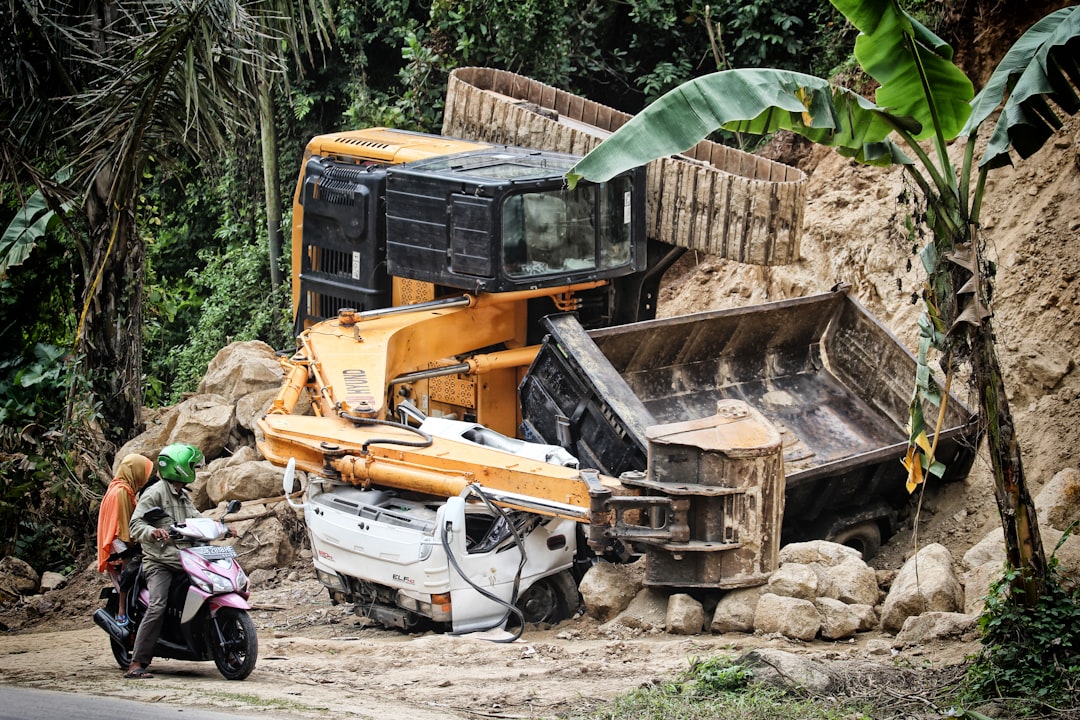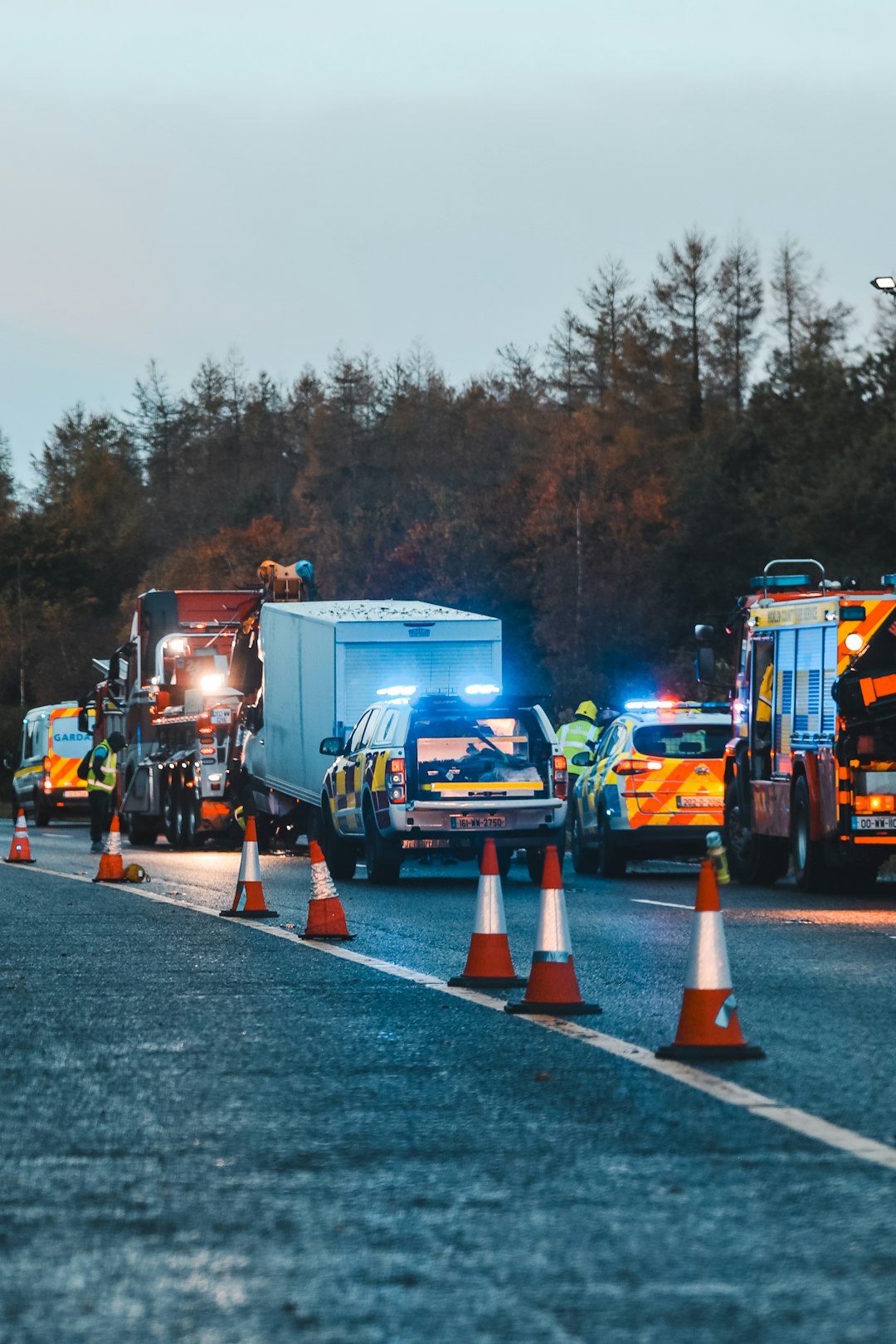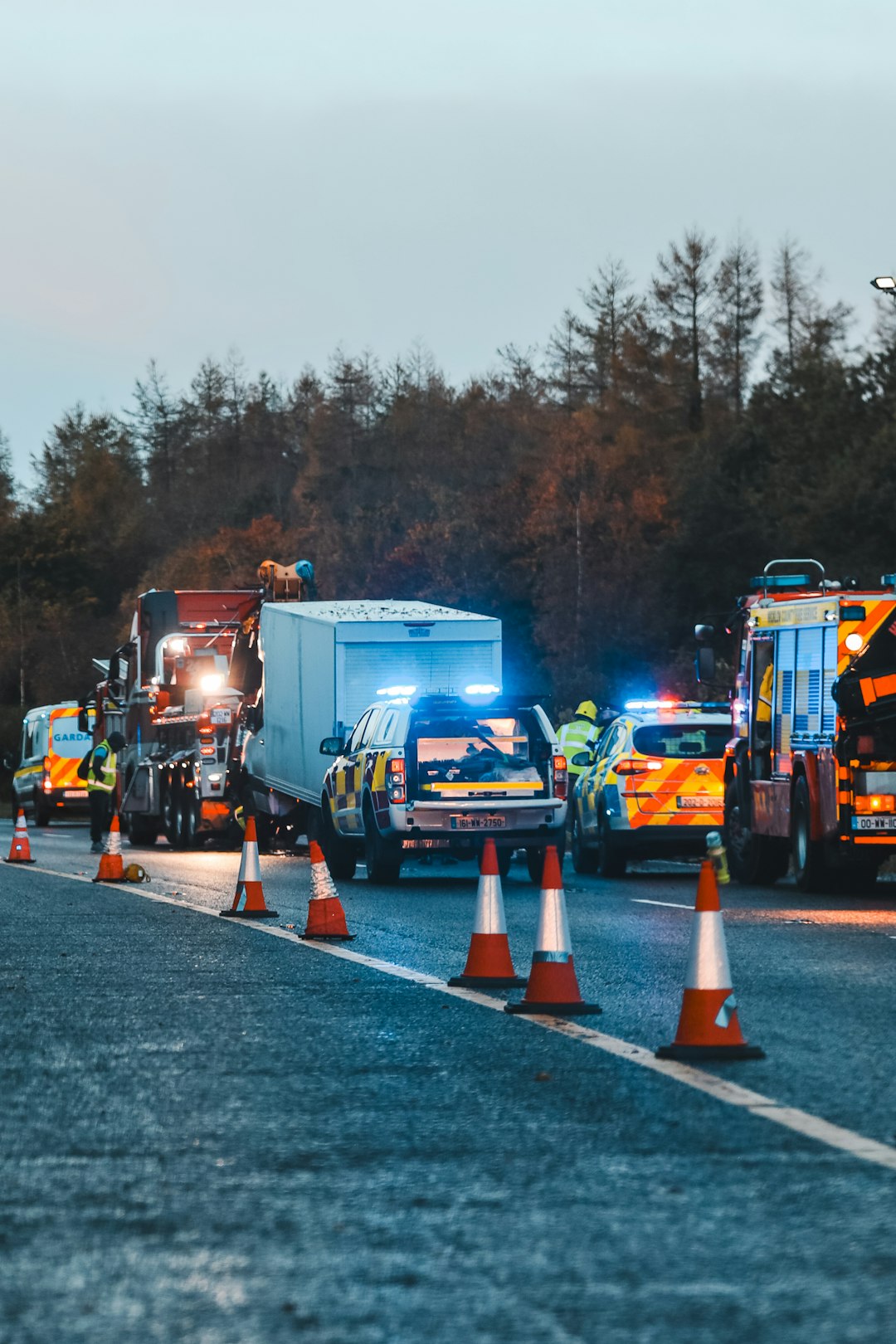

Understanding the Basics of Truck Accident Laws in Seattle: How to Negotiate a Truck Accident Settlement
Navigating the aftermath of a truck accident can be an overwhelming experience, particularly when it comes to negotiating a settlement. In Seattle, understanding the basics of truck accident laws is essential for achieving a fair and just resolution. This essay delves into the critical elements that will aid you in effectively negotiating a truck accident settlement in Seattle.
First and foremost, it's vital to understand that truck accidents often involve more complex legal considerations compared to typical car accidents. Due to the sheer size and weight of trucks, accidents often result in severe injuries or extensive property damage. Consequently, settlements tend to be higher because they account for significant medical expenses, rehabilitation costs, loss of income, and emotional trauma.
In Seattle, as well as throughout Washington State, truck accident cases are generally governed by both state and federal regulations. The Federal Motor Carrier Safety Administration (FMCSA) sets stringent standards for commercial trucking operations nationwide. These regulations cover everything from driver qualifications to vehicle maintenance and hours-of-service rules intended to prevent driver fatigue. A thorough understanding of these rules can provide crucial leverage during negotiations.
One must also consider Washington State's comparative negligence law. Under this rule, if you're partially at fault for the accident, your compensation may be reduced accordingly. For instance, if you are found 20% at fault for the accident and your damages amount to $100,000, you'd only receive $80,000. Therefore, gathering concrete evidence such as police reports, eyewitness testimonies, and expert analyses plays an indispensable role in establishing liability and minimizing any percentage of fault attributed to you.
Before diving into negotiations with insurance companies or opposing parties' legal representatives, it's highly advisable to consult with an experienced personal injury attorney specializing in truck accidents. Legal professionals possess nuanced knowledge that can significantly bolster your case; they understand how insurance adjusters operate and are adept at countering lowball offers designed to settle claims quickly and cheaply.
When negotiating a settlement in Seattle specifically-or anywhere-the initial offer is rarely final. It's essential not only to present all documented expenses but also future costs associated with ongoing medical treatment or long-term disability care. Emotional distress and pain suffering are also compensable under Washington law; hence they should be quantified as part of your claim.
Additionally, keep in mind that trucking companies often have substantial resources dedicated solely toward minimizing their financial liability after accidents occur. They deploy skilled investigators immediately following incidents intending either refute claims outright or lessen potential payouts substantially.
As negotiations progress remember patience is paramount; rushing could lead settling inadequately covering sustained losses caused by another's negligence behind wheel large commercial vehicle like semi-truck tractor-trailer combination vehicles common on highways around Seattle metropolitan area including I-5 corridor SR-99 routes among others frequented daily basis heavily trafficked regions Pacific Northwest United States region overall encompassing vast geographical landscape diverse population centers economic activities industries reliant upon freight transportation logistics networks integral functioning society economy alike interdependent systems working cooperatively ensure seamless flow goods services across borders boundaries state lines jurisdictions involved regulatory frameworks governing operational conduct participants engaged therein collective endeavor fulfilling societal needs demands marketplace transactional exchanges occurring continuously without interruption delays disruptions ideally speaking course real-world scenarios complexities arise necessitating intervention adjudication dispute resolutions mechanisms processes established order maintain equilibrium justice fairness equitable treatment stakeholders concerned ultimately resulting favorable outcomes aggrieved parties seeking redress grievances suffered due wrongful actions omissions others responsible accountable uphold principles integrity transparency honesty trustworthiness foundational pillars underpinning legal system jurisprudence guiding ethos morality ethics values
When faced with the daunting task of negotiating a truck accident settlement in Seattle, one of the most crucial steps is to gather and organize all relevant evidence. This process can significantly impact the outcome of your case, potentially leading to a more favorable settlement. Here's a comprehensive guide on how to effectively manage this critical phase.
First and foremost, it's essential to understand what constitutes relevant evidence in the context of a truck accident. The primary categories include physical evidence from the scene, documentation, witness statements, and expert testimonies. Each type plays a vital role in building a compelling case.
Begin by collecting physical evidence from the accident scene as soon as possible. This includes photographs or videos of the vehicles involved, road conditions, skid marks, traffic signals, and any other environmental factors that might have contributed to the collision. In today's digital age, most people have smartphones readily available; use them to capture detailed images from multiple angles. These visual records can provide an invaluable snapshot of the immediate aftermath before any changes occur due to weather or cleanup efforts.
Next, acquire all pertinent documentation related to the accident. Police reports are particularly crucial as they offer an official account of what transpired and may include citations issued at the scene. Additionally, obtain medical records detailing any injuries sustained by you or passengers. These documents not only confirm that injuries occurred but also help quantify medical expenses for which you seek compensation.
Witness statements serve as another cornerstone of your evidence collection. If there were bystanders or other drivers who saw the accident unfold, their accounts could corroborate your version of events. Make sure to get their contact information and encourage them to provide written or recorded statements while their memories are still fresh.
In complex cases involving significant damages or disputes over fault, expert testimony can be immensely beneficial. Accident reconstruction specialists can analyze data from various sources-such as vehicle damage patterns and road conditions-to recreate how the incident likely happened. Their professional insights can lend credibility to your claims during negotiations.
Once you've gathered this array of evidence, organization becomes key. Create a dedicated file-either physical or digital-where you systematically store all collected materials. Categorize items clearly: keep police reports separate from medical records and label witness statements distinctly from expert analyses. This methodical approach not only ensures that nothing gets overlooked but also makes it easier for your attorney (if you choose to hire one) to access and review critical information swiftly.
It's worth noting that timely action is imperative throughout this process. Evidence tends to degrade over time; memories fade, physical traces disappear, and even digital records can become corrupted or lost if not properly backed up. Acting promptly can preserve the integrity of your case's foundational elements.
Moreover, maintaining clear communication with insurance companies is essential when presenting your organized evidence during settlement talks. Providing them with well-documented proof supports your claims robustly and demonstrates preparedness-a factor that often encourages insurers to settle more amicably rather than risk losing in court.
In conclusion, gathering and organizing all relevant evidence is not just about amassing data; it's about constructing a coherent narrative that accurately depicts what happened during a truck accident in Seattle. By meticulously collecting physical proof from the scene, securing comprehensive documentation, obtaining reliable witness statements, seeking expert testimony when necessary, and keeping everything organized for easy access and presentation-you set yourself up for success in negotiating a fair settlement.
Navigating the labyrinth of Washington State's trucking laws and regulations can be daunting, especially in the aftermath of a truck accident.. At the heart of this complex legal terrain lies the role of a Seattle truck accident lawyer, whose expertise becomes indispensable for those seeking justice and compensation. Truck accidents often result in severe injuries and significant property damage due to the sheer size and weight of commercial trucks.

Posted by on 2024-09-16
When faced with the aftermath of a truck accident in Seattle, finding affordable legal representation can be a daunting task.. Legal services often come with high price tags, but there are ways to navigate this terrain without breaking the bank.

Posted by on 2024-09-16
Navigating the aftermath of a truck accident can be a daunting experience, especially when it comes to filing a claim.. A Seattle truck accident lawyer can guide you through this intricate process, ensuring that you pursue the right steps to secure fair compensation.

Posted by on 2024-09-16
Navigating the aftermath of a truck accident can be an overwhelming and complex journey, particularly when you're facing physical injuries, emotional distress, and financial burdens.. One of the primary concerns for victims in such situations is how to maximize their settlement with legal assistance.

Posted by on 2024-09-16
When facing the aftermath of a truck accident in Seattle, finding the best lawyer to represent your case can make a significant difference in the outcome.. Truck accidents often result in severe injuries and substantial financial losses, making it crucial to have an experienced and reliable attorney by your side.

Posted by on 2024-09-16
When involved in a truck accident in Seattle, negotiating a settlement can be a daunting task. One of the most crucial steps in this process is to calculate your damages accurately. Doing so ensures that you receive fair compensation and helps streamline negotiations with insurance companies or opposing parties.
First and foremost, understanding the types of damages you can claim is essential. There are generally two categories: economic and non-economic damages. Economic damages include medical expenses, property damage, lost wages, and any other out-of-pocket costs directly resulting from the accident. Non-economic damages encompass pain and suffering, emotional distress, and loss of enjoyment of life.
To begin calculating your economic damages, gather all relevant documentation. This includes hospital bills, receipts for medication or therapy, repair estimates for your vehicle, and proof of lost income if you've been unable to work due to your injuries. Be meticulous in collecting these documents as they form the backbone of your claim.
Medical expenses can quickly accumulate after a truck accident. From initial emergency care to ongoing treatments like physical therapy or counseling sessions, every cost should be accounted for. It's advisable to consult with healthcare providers to get an estimate of any future medical expenses you may incur due to long-term injuries.
Lost wages are another significant component of economic damages. If you've missed work because of the accident or will be unable to return to your previous job capacity, this loss needs thorough documentation. Pay stubs, tax returns, or a letter from your employer can serve as evidence for this part of your claim.
Property damage is straightforward but equally important. Obtain repair estimates from reputable mechanics or body shops in Seattle to determine how much it will cost to fix or replace your vehicle.
Calculating non-economic damages is more complex because they are not easily quantifiable. Pain and suffering vary greatly among individuals and situations; however, one common method used by attorneys is the "multiplier method." This involves adding up all economic damages and multiplying them by a number (typically between 1.5 and 5) based on the severity of your situation.
Emotional distress and loss of enjoyment also fall under non-economic damages but require careful consideration and possibly expert testimony from psychologists or counselors who have treated you after the accident.
Once you've gathered all necessary information and calculated both economic and non-economic damages meticulously, it's time to present this data during settlement negotiations. Being well-prepared with accurate calculations strengthens your position considerably.
In conclusion, calculating your damages accurately is fundamental when negotiating a truck accident settlement in Seattle. Meticulous documentation supports both economic claims like medical expenses and lost wages as well as non-economic factors such as pain and emotional distress. By ensuring every aspect is accounted for accurately before entering negotiations, you place yourself in the best possible position for securing fair compensation.

Negotiating a truck accident settlement in Seattle can be a daunting process, but one of the most critical steps is contacting the insurance company with a demand letter. This document is your formal request for compensation and serves as the cornerstone of your negotiation strategy. Crafting an effective demand letter requires careful attention to detail, an understanding of legal principles, and a clear presentation of facts.
First and foremost, it's important to gather all relevant information before penning your demand letter. This includes medical records, police reports, witness statements, and any other documentation that supports your claim. The more evidence you have, the stronger your case will be when presented to the insurance company.
Once you've compiled your evidence, begin your demand letter by outlining the incident in a factual manner. Clearly describe how the truck accident occurred, specifying details such as date, time, location, and weather conditions. Mention any traffic citations issued at the scene and provide a concise narrative that paints a vivid picture of what transpired.
The next section should focus on liability. Explicitly state why you believe the truck driver or trucking company is responsible for the accident. Reference specific laws or regulations they violated if applicable. For instance, if fatigue was a factor due to extended hours on the road beyond federal limits, make sure to highlight this point.
Following this, delineate your injuries and their impact on your life. Attach copies of medical records and bills to substantiate your claims. Describe any ongoing treatments or long-term effects stemming from the accident; this not only humanizes your situation but also underscores the necessity for adequate compensation.
Your financial losses extend beyond medical expenses; therefore, it's essential to include lost wages if you've been unable to work following the accident. Document these losses meticulously with employer statements or pay stubs as proof of income disruption.
Finally, calculate a fair settlement amount that encompasses all aspects of your suffering-both economic and non-economic damages such as pain and suffering or emotional distress. Be realistic yet assertive with this figure; aim high enough to allow room for negotiation but grounded enough to be taken seriously by the insurance adjuster.
End your demand letter with a firm yet polite request for prompt action from the insurance company. Set a reasonable deadline for their response while expressing willingness to discuss further if necessary.
Remember that patience is key during this process; negotiations can take time as both parties work towards an agreement. By presenting a well-crafted demand letter supported by comprehensive documentation, you lay down a strong foundation for achieving just compensation in settling your truck accident claim in Seattle.
In conclusion, contacting an insurance company with a well-prepared demand letter is crucial in negotiating settlements effectively after experiencing a truck accident in Seattle. By thoroughly detailing every aspect related to liability and damages backed up by solid evidence sets you on path towards obtaining rightful compensation ensuring justice prevails through proper negotiations.
Who is liable in a Seattle truck accident involving multiple parties?
Negotiating a truck accident settlement in Seattle can be a daunting task, especially when you are already dealing with the physical and emotional stress of the incident. One crucial aspect of this process is being prepared for counteroffers and negotiations. Understanding how to handle this phase effectively can significantly impact the outcome of your settlement.
Firstly, it's essential to gather all necessary documentation before entering into negotiations. This includes police reports, medical records, repair estimates, and any other evidence that supports your claim. Having comprehensive records not only strengthens your case but also demonstrates your seriousness and preparedness to the opposing party.
When you present your initial demand to the insurance company or the at-fault party's representatives, it's important to be realistic yet firm about what you are seeking in terms of compensation. Your initial demand should reflect all your losses-medical bills, lost wages, pain and suffering-while also leaving some room for negotiation. It's often recommended to ask for more than you expect to receive because counteroffers will typically come in lower than your initial demand.
As soon as you make your first move, be ready for counteroffers. Insurance companies are skilled negotiators who aim to minimize their payouts. They might present an offer that is significantly lower than what you have demanded. Don't be disheartened by this; it's a common tactic designed to test your resolve and see if you're willing to settle quickly for less money.
When faced with a counteroffer, take time to evaluate it carefully rather than making an impulsive decision. Consider whether the offer covers all your expenses adequately and compensates fairly for any non-economic damages like pain and suffering. If it falls short, prepare a well-reasoned response outlining why their offer is insufficient while reiterating the strengths of your case.
The key during these back-and-forth exchanges is patience and persistence. Negotiations can take time, sometimes involving multiple rounds of offers and counteroffers before a mutually agreeable figure is reached. Stay calm and composed throughout these discussions; showing frustration or eagerness can weaken your negotiating position.
Additionally, consider enlisting professional help from an experienced personal injury attorney familiar with Seattle's legal landscape if negotiations become particularly challenging or complex. An attorney can provide valuable insights into fair compensation amounts based on past cases similar to yours and navigate legal intricacies that might arise during settlement talks.
Remember also that settlements aren't just about financial compensation; sometimes agreeing on additional terms such as non-disclosure agreements or structured payments could also play vital roles depending on individual circumstances.
In conclusion, being prepared for counteroffers and negotiations involves thorough preparation backed by solid evidence supporting your claim along with strategic planning regarding initial demands versus acceptable compromises-all executed with patience & resilience through potentially prolonged discussions until reaching satisfactory resolution protecting best interests post-truck accident scenario within Seattle jurisdictional constraints.
Navigating the aftermath of a truck accident is often an overwhelming and stressful experience. The complexity increases when it comes to negotiating a settlement, especially in a bustling city like Seattle. One critical step that can significantly influence the outcome of your case is to consider hiring a Seattle-based personal injury attorney. This decision can not only alleviate much of the stress but also enhance your chances of securing a fair and just settlement.
Seattle is known for its intricate traffic systems and heavy commercial vehicle presence, making truck accidents unfortunately common. These incidents often result in severe injuries and substantial property damage due to the sheer size and weight of trucks. Negotiating a settlement under these circumstances requires specialized knowledge of both local laws and the unique dynamics involved in truck accidents.
A Seattle-based personal injury attorney brings invaluable expertise to the table. They are well-versed with Washington State's specific regulations regarding commercial vehicles, which can be markedly different from those governing regular automobiles. Understanding these nuances is crucial because it impacts liability determination, damage assessment, and ultimately, the compensation you might receive.
Moreover, local attorneys have established relationships with Seattle's legal professionals, including judges, opposing lawyers, and even insurance adjusters. These connections can facilitate smoother negotiations and potentially expedite your case's resolution. An out-of-town lawyer might lack this network, possibly leading to delays or misunderstandings that could jeopardize your settlement.
When you hire a local personal injury attorney, you also gain an advocate who understands Seattle's healthcare system thoroughly. This familiarity ensures they can efficiently coordinate with medical providers for necessary documentation regarding your treatment costs and future medical needs-key components in calculating an appropriate settlement amount.
The emotional toll following a traumatic event like a truck accident cannot be understated. By enlisting the help of an experienced professional who comprehends Seattle's legal landscape intimately, you allow yourself more time to focus on recovery rather than getting entangled in complex legal proceedings.
In conclusion, considering hiring a Seattle-based personal injury attorney is not just advisable; it may be pivotal in ensuring you receive fair compensation after a truck accident. Their specialized knowledge of local laws, established professional networks within the city's legal community, and comprehensive understanding of relevant medical systems all combine to provide robust support during one of life's most challenging times. Making this choice could mean the difference between securing an equitable settlement swiftly versus facing prolonged uncertainty and inadequate compensation.
Navigating the aftermath of a truck accident in Seattle is an arduous task, often compounded by the labyrinthine process of negotiating a settlement. One of the most pivotal decisions you will face during this ordeal is knowing when to accept a settlement or pursue further legal action. This choice can significantly influence your financial recovery and emotional well-being.
Firstly, it's important to understand what a settlement entails. Essentially, it is an agreement between you and the other party-often an insurance company-where you agree to forgo further legal claims in exchange for compensation. The advantage here is clear: settlements provide a faster resolution and eliminate the uncertainty of a court trial. However, quick resolutions aren't always synonymous with fair ones.
The first step in making an informed decision is gathering all relevant information related to your case. This includes medical records, police reports, witness statements, and any other documentation that establishes fault and quantifies your losses. Consulting with an experienced personal injury attorney who specializes in truck accidents can be invaluable at this stage; they can offer insights into whether the offered settlement sufficiently covers current and future expenses.
Once you have all necessary information, critically evaluate the initial settlement offer. Insurance companies often aim to minimize their payout, so their first offer might be lower than what you deserve. Assess whether the amount covers not only immediate costs like medical bills and vehicle repairs but also long-term expenses such as ongoing medical treatment or lost wages due to inability to work.
If the offer seems inadequate, it may be time to consider pursuing further legal action. Filing a lawsuit can sometimes compel insurance companies to increase their offers significantly if they believe there's a strong chance you'll win in court. But remember, litigation comes with its own set of challenges-it's time-consuming, emotionally taxing, and does not guarantee a favorable outcome.
Another crucial factor is timing. Washington State has a statute of limitations for personal injury cases resulting from truck accidents; typically, you have three years from the date of the accident to file a lawsuit. Delaying too long could jeopardize your ability to pursue compensation through litigation if negotiations fall apart.
In addition to these logistical considerations, weigh your personal tolerance for risk and stress against potential rewards. Court proceedings are inherently unpredictable; even with compelling evidence, there's no certainty that you'll receive more than what was initially offered in the settlement-or anything at all.
Finally, keep communication channels open with your legal counsel throughout this process. Their expertise not only provides clarity on complex legal issues but also helps maintain realistic expectations about outcomes.
In conclusion, knowing when to accept a settlement or pursue further legal action following a truck accident in Seattle requires careful consideration of several factors: adequacy of the initial offer, strength of your case evidence-wise, timing constraints imposed by state laws, and your own emotional resilience. Armed with thorough information and expert advice from seasoned attorneys, you'll be better positioned to make this critical decision wisely.